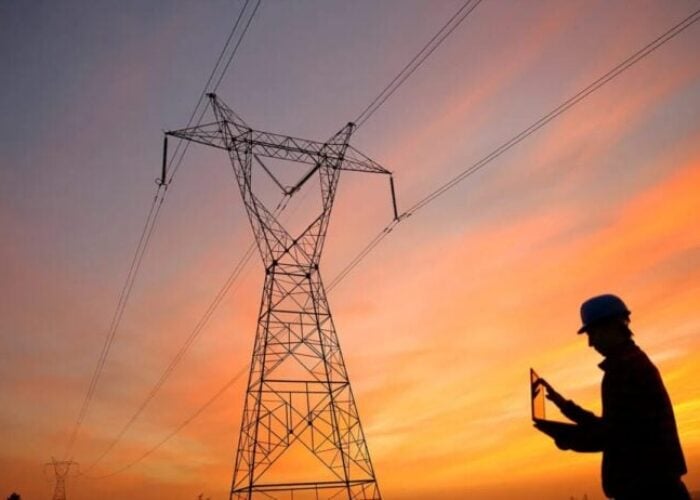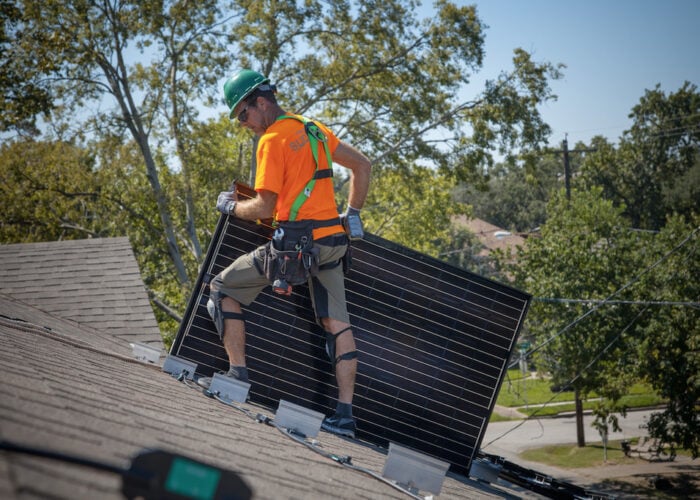The imposition of European Commission tariffs of up to 60% against Chinese manufacturers could lead to 242,000 job losses in Europe during the first year, new research claims.
At the end of last year, the European Commission launched anti-dumping and anti-subsidy proceedings against Chinese wafer, cell and module manufacturers, following complaints from EU ProSun, a group of European manufacturers led by German manufacturer SolarWorld.
Unlock unlimited access for 12 whole months of distinctive global analysis
Photovoltaics International is now included.
- Regular insight and analysis of the industry’s biggest developments
- In-depth interviews with the industry’s leading figures
- Unlimited digital access to the PV Tech Power journal catalogue
- Unlimited digital access to the Photovoltaics International journal catalogue
- Access to more than 1,000 technical papers
- Discounts on Solar Media’s portfolio of events, in-person and virtual
Prognos's report, commissioned by the Alliance for Affordable Solar Energy (AFASE), which opposes the imposition of tariffs against Chinese manufacturers, shows the impact any punitive measures would have on employment and value added in the EU from 2013 to 2015 based on three scenarios of duties: 20%, 35% and 60%. However, ProSun dismisses the findings as “mathematical trickery”.
| Job losses EU | Losses of value added | |||
| First year | Third year | First year | Third year | |
| Duty rate of 20% | 115,600 jobs | 175,500 jobs | €4.740 billion | €18.4 billion |
| Duty rate of 35% | 119,700 jobs | 244,100 jobs | €8.170 billion | €27.8 billion |
| Duty rate of 60% | 193,700 jobs | 242,000 jobs | €7.860 billion | €27.2 billion |
The report highlights that the UK would be hardest hit by these tariffs because around 80% of PV being installed in the UK originates in China and the UK has no solar PV manufacturing capability. Prognos states that 31,500 jobs could be lost in the first year, if tariffs of 60% were imposed. This would cost the UK €1.18 billion (US$.1.57 billion).
At a duty rate of 20%, job losses in the EU could amount to 115,600 in the first year, costing €4.740 billion. Over three years, 175,500 jobs would be at risk, incurring a cost of €18.4 billion.
By comparison, a duty rate of 60% could result in 193,700 job losses after the first year resulting in a loss of €7.860 billion, over three years this would rise to 242,000 jobs, costing €27.2 billion.
ProSun has asked the Commission to impose tariffs of up to 120% stating this would allow EU producers to operate profitably. “Fair competition benefits everybody. We need anti-dumping measures in the EU as soon as possible”, Milan Nitzschke, President of EU Prosun, told PV-Tech.
The study was presented by Prognos at a hearing arranged by AFASE held at the European Commission yesterday in Brussels.
“The potential positive impact of duties for the EU solar producers is dwarfed by the negative impact on employment in the EU. Due to the imposition of tariffs production of EU solar products increases and some jobs are being created. However, the jobs created by the EU solar producers represent at the very most 20% of the jobs lost along the PV value chain,” said Thorsten Preugschas, CEO of the German project developer Soventix, a spokesperson of AFASE.
“It is quite cynical to use the jobs argument on a day when two major European solar manufacturers had to declare insolvency,” said Nitzschke.
“The US case already disproves the claims made by AFASE and Prognos. None of the negative effects predicted by China took place. Contrary to a very pessimistic prognosis similar to the Prognos study, the number of solar installations has increased substantially, and consumer prices have remained stable or even decreased even though Chinese imports have drastically declined. It is a win-win situation.”
AFASE also states that “Duties will lead to a considerable decrease in demand for solar products which results on the one hand in less demand for solar installations and services. On the other hand, the supply of intermediate inputs such as raw materials and production equipment from Europe to China decreases.”
Nitzschke concludes, “The Prognos study has to be regarded very skeptically. According to the Prognos analysis, solar jobs in Europe depend mostly on Chinese dumping. This is ridiculous and is like saying that the Tour de France depends mostly on Lance Armstrong and doping.”
This follows a ruling in the US last year when CASM, led by the US branch of SolarWorld, lodged a complaint with the US Department of Commerce last year, which resulted in duties from 24-250% being levied against Chinese manufacturers.
Update:
In response to Nitzschke's comments, Communications Manager at Chinese manufacturing giant Suntech, Björn Emde, told PV-Tech, “SolarWorld should know better than to attack the sound research done by the Prognos institute. After all, Prognos has been entrusted with studies and reports for the German PV association BSW for many years, while SolarWorld's CEO Frank Asbeck and Head of Marketing Milan Nitschke were board directors.”







